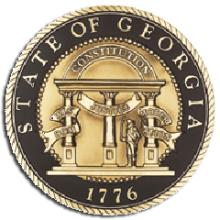
Fast, affordable Internet access for all.

Earlier this legislative session, we followed legislation in Virginia, which would have negatively impacted municipalities’ ability to use their publicly owned infrastructure to improve connectivity. We’re now watching a bill in Missouri that’s been resurrected from legislation that died last year. Another state bill just appeared on our radar in Georgia that interferes with local community authority by prescribing stringent rules on permitting and applications.
The Wrong Direction
When our Christopher saw it, he said:
This is based on the false notion that cities are the barrier to better networks rather than recognizing the power of pole owners and existing attachers as a far more significant barrier.
The bill, HB 336 or the Broadband Strategy for All of Georgia Act, allows communities to be certified as “broadband ready,” which may allow providers that serve those communities eligible for state tax incentives. In order for a community to be certified as a “broadband ready community,” it must comply with a specific model ordinance, created by the state that dictates the process for reviewing applications for broadband projects.
The bill starts out all wrong, by defining broadband as 10 Megabits per second (Mbps) download by 1 Mbps upload.  Clearly that indicates that its point of origin is the incumbent telephone companies who want to make it easier to provide their slow DSL, rather than encourage upgrades to the FCC definition of “broadband.” As a reminder, the federal government considers broadband to be 25 Mbps / 3 Mbps.
Clearly that indicates that its point of origin is the incumbent telephone companies who want to make it easier to provide their slow DSL, rather than encourage upgrades to the FCC definition of “broadband.” As a reminder, the federal government considers broadband to be 25 Mbps / 3 Mbps.
The process proposed in HB 336 assumes that local communities that are trying to protect their public spaces are the bad guys and any DSL or cable company who wants to insert their lines or equipment in public space is but a poor victim. The bill applies to any “public rights of way, infrastructure and poles, river and bridge crossings, or any other physical assets owned or controlled by the political subdivision.”
The Heavy Hand Of The State
HB 336 caps application fees at $100, even though the cost of processing an application varies from place to place. This bill prevents municipalities and local governments from putting a stop to application approvals and permit issuances. If a community plans to issue a permit, they are not allowed to require the applicant to offer Internet access for municipal facilities as part of the approval or to ask for any payment beyond “cost based fees.” In short, the state is using HB 336 to strip local communities of any authority to control their own public spaces or processes in order to be certified as a "broadband ready community."
Waiting On The Floor
The bill passed through the House Energy, Utilities & Telecommunications Committee on February 21 and it’s now on the General Calendar waiting to be considered by the entire body. If you live in Georgia, now’s the time to contact your Representative and tell them that if the bill comes before them, they should vote it down. Rather than taking away local communities’ ability to control their own spaces, the state legislature should give them wide authority to do what they need to improve local connectivity.
